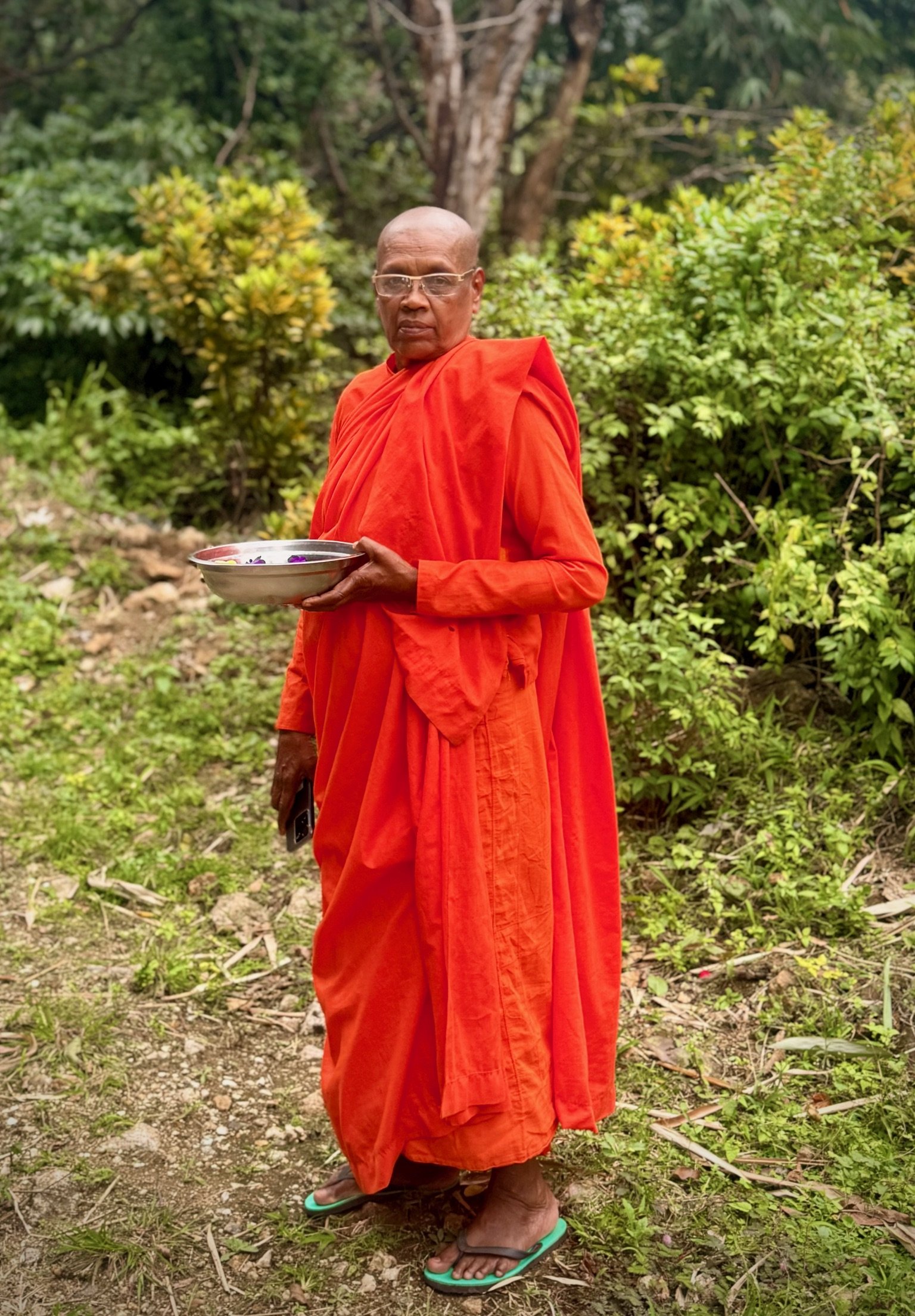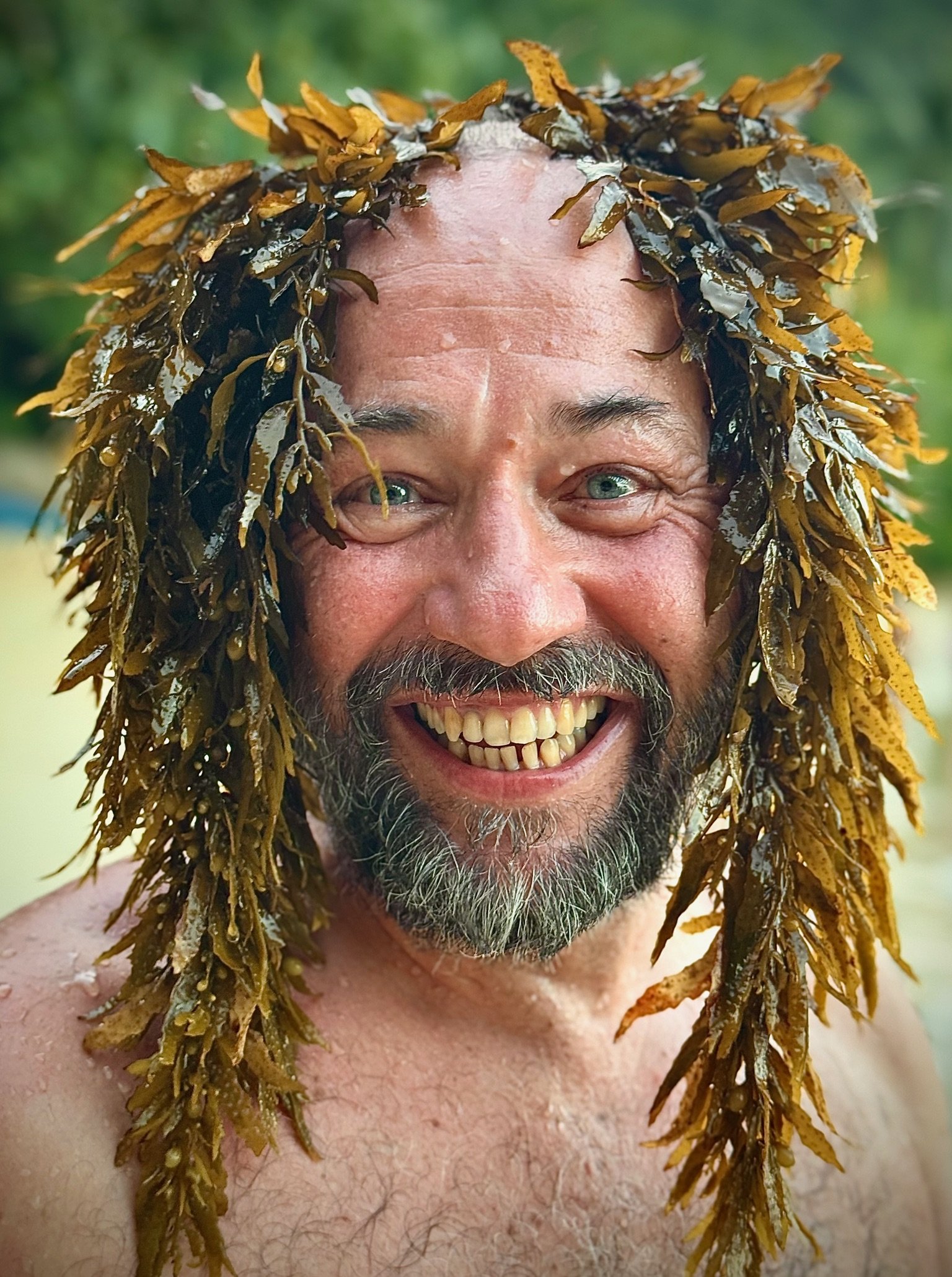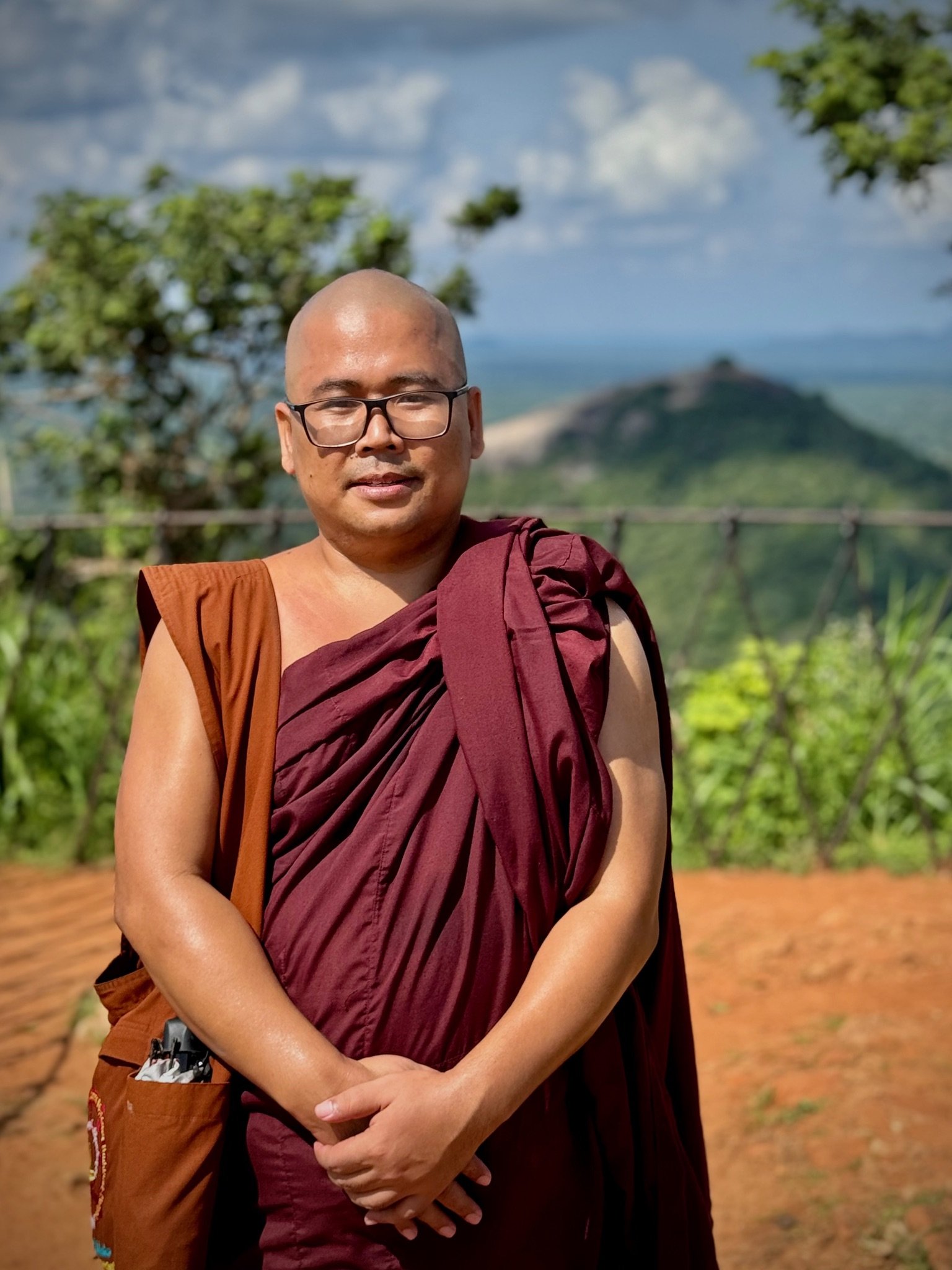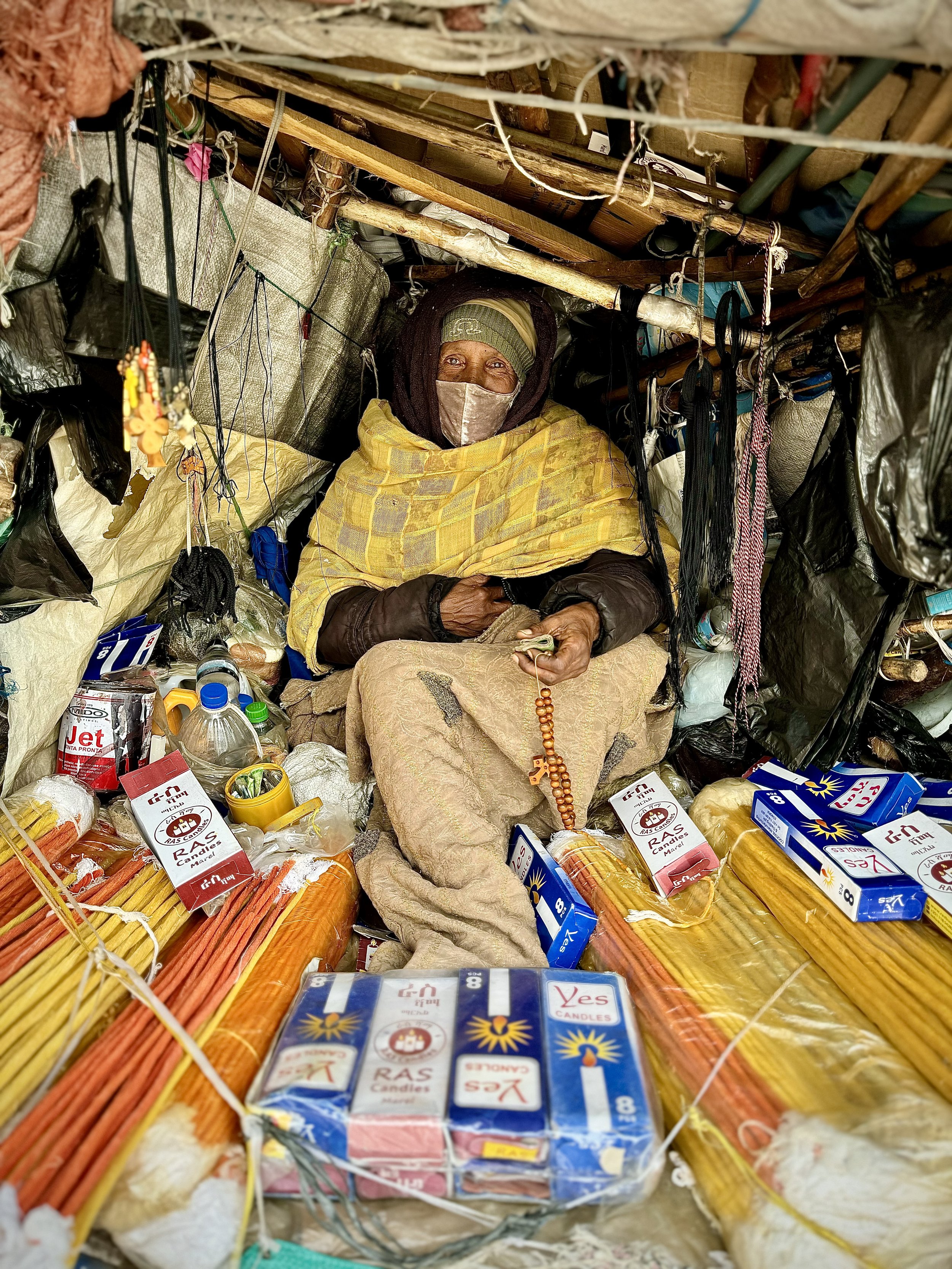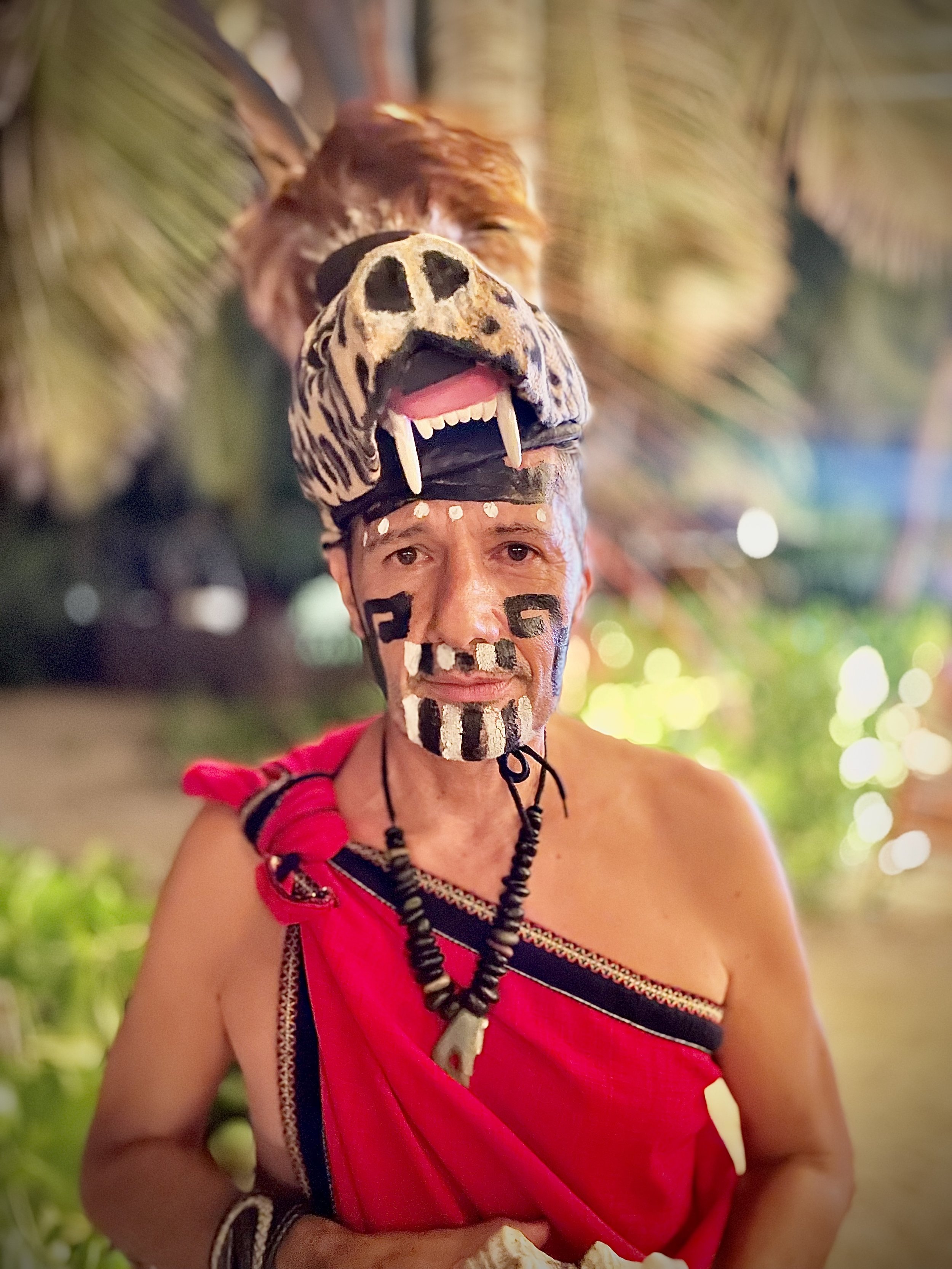What is most important in life? Different answers to the same question, when posed hundreds of times to individuals from various cultures and backgrounds across the globe, reveal not only the shared core values of humanity but also the infinite complexity and rich diversity of the human experience. The Portrait Project serves as a vivid photographic representation of each individual, capturing their unique perspectives and offering illuminating insights into their deeply personal answers.“Serve the people, make our guru happy, and follow tradition.” Sikh warrior.
Sandeep is the joyful 18th generation Jain high priest of the Ranakpur temple outside of Udaipur, India, one of the largest and most holy Jain temples in the world. Built in the 15th century, it is a mastery of white marble, with hundreds of columns supporting domes detailing the lives of the prophets, dharmas, and dancing ladies. The cool winter air chills the marble under your bare feet while the saffron robes of the thin, ascetic monks add splashes of color as they clean the temple. Magic seems likely when you walk past the 600 year-old tree that still grows near the center. Jainism is one of the oldest practiced religions in the world, with claims that it is 8,000 years old. It’s precepts are similar to Buddhism: Non-attachment, non-violence, and “many-sidedness, ” the concept that truth is relative and reality complex. Sandeep, whose handsome smile makes him look like a guru from central casting, says the most important thing in life is meditation, as it allows him to avoid the negative energy that comes from dwelling on the past or the future. “Why be sad about the past? It cannot be changed. Life is fantastic! We must enjoy it. And the best way to do that is to be present in the moment.”
Susila, 65, has been a nun for five years. She joined the small nunnery in the hill country in Sri Lanka after her husband died. She has six grown children, and didn’t want to be a burden on them as she got older. Sri Lanka doesn’t have a pension system, so some turn to monasteries and nunneries in retirement. Still, she enjoys her quiet life at the nunnery at the foot of a waterfall. What is most important to her in life? “Buddhism. I’ve only been a nun for five years though, so I don’t know much yet.”
“Freedom. Freedom to travel, to be in beautiful places, to be alive.”
Mahangalidara, a monk from Myanmar, says, “Process of the mind. Money, power, success, do not bring happiness. If you have the right process of the mind, you can be happy anywhere. In the country, in the city, anywhere. My country is in great conflict, but if you master your mind, you can find peace. I’m getting a PhD in Buddhist studies and plan to teach. If you add me on Facebook I can teach you too.”
”Food.” Age 89, begging in front of a McDonalds in Yunnan, China.
Apo Whang-od, at 106 years old, is a master of “batok” tattoos and a beloved figure in the Philippines. She has been tattooing men and women with soot and a thorn for almost a century, carving symbols of strength, travel, protection, and beauty into the skin of tens of thousands. It is part of a nearly 3,000 y/o tradition from the Kalinga ethnic group in northern Philippines. These days, hundreds of travelers, mostly Filipino, drive 13 hours overnight in cramped vans on treacherous roads, and then hike through rice terraces into her village at daybreak. All for the chance - but not a guarantee - that she will painfully tap a simple three dot tattoo into your skin. Some come multiple times and are not tattooed. The three dots are an ellipses, representing herself and her two granddaughters carrying this indigenous tradition that was all but lost during colonial times into the future. Her popularity has only expanded after she was on the cover of Vogue Philippines last month. Apo Whang-od’s answer to what is most important in life? “Do Good.” She does good by working tirelessly to maintain her culture’s traditions into the future.
“My greatest life lesson is my greatest regret. I regret that I didn’t invest and save more when I was young and everything was cheap. Goods, property, everything is so expensive now. I would much rather dress like you, but the economy is so bad I can’t afford anything now, and now I am old and poor and I can’t change that. I don’t regret the time I spent with my family when I was young, but I wish I would have saved more when I was young.” Addis Ababa, Ethiopia
Mr. Tem manned a 120mm anti-aircraft war for the Northern Vietnamese army, guarding the Ho Chi Minh trail from American bombers. Now he manages a 1,000 year-old Buddhist temple and learns to play classical music through Youtube videos. For nine years he shot into the sky, watching his friends die around him. From 1961-1970 he did not see or hear from his wife or family. He said that at the end of the war he didn’t feel happy or sad, but he wasn’t scared any more. “It was like I woke up after a long sleep.” Now Mr. Tem lives in a single-room with his friendly dog and plays the two-string violin and a bamboo Hmong flute at the Thai Vi Temple. He has an ear for music: He can pick up a complicated song in a couple of weeks just by watching online videos. He carries the sadness of the war, but doesn’t blame the United States. “Lots of people in the US protested the war, and no one knew the outcome. It was Vietnam’s fate to fight the wars. If you don’t have the worst experiences you don’t know the value of peaceful experiences.”
Mongolian rapper Tina G spits rhymes and drops beats as part of the hip-hop group Bei Pei, or as they like to say, the northern sect of the Wu Tang Clan. Just like Biggie, Tupac, and the other rappers Tina G looks up to, Chinese hip-hop is fast becoming a vehicle for young Chinese to express their discontent with mainstream Chinese society. Moreover, the Chinese language, rich in rhymes, wordplay, and double entendre, lends itself well to rap. And since rap and tattoos are banned from state TV, it is an underground counterculture movement. When I asked what was most important to her, she, along with the rest of her crew, said “hip-hop forever” with a scowl undermined by smiling eyes. But later, when it was just the two of us, she said something else: feminism (女权主义). “It is important that I’m treated equally. I love hip-hop, but it is only a vehicle to express myself. My father doesn’t know about my tattoos or rapping, so I only go home to Mongolia in the winter so I can cover up my tattoos. But my mom knows and she supports me living the life I want. My boyfriend [also part of Bei Pei] respects my desire to be equal. He wants me to have a career and he supports me rapping too.”
Sean is a cantankerous conservationist and promotes responsible ecotourism in the Tiger Leaping Gorge. But he is often undermined by the government, which prefers a top-down approach to protecting the gorge and frequently cuts out locals from the tourism industry. He has good reason to distrust the Communist Party: When Sean was just two-years old, during the Cultural Revolution, members of Mao’s Red Guard locked him and his family in his home and lit it on fire, attempting to kill them all. He carries significant scars and can barely use his left hand. He says the most important thing is, “do something real for other people.” Too many Chinese people say one thing but do another. Protecting the environment is the entire world’s responsibility, but China has too many people and too many factories, so we have a bigger responsibility. Tourism is the best factory, because it doesn’t take from the environment.” When I asked him about whether he was concerned about repercussions for speaking out against the government, he was unconcerned. He said, “I cannot be a coward. If you don’t speak out, you can’t change the conditions. And if you don’t, we will all be weak.”
“Life is sickness and we must receive our challenges. Our destiny cannot be changed.” - Cross-seller near a church, downtown Addis Ababa.
Mezcoatll, or the “night serpent,” is a Mayan shaman in the Yucatan, preserving and promoting their pre-Hispanic traditions and culture. His answer to what is life’s most important life lesson? “Remember why you are here on this earth. You are light, you are energy, you are here to be happy, you are here to find peace. Protect the earth and it will protect you.” Yucatan, Mexico
“Religion, because it brings peace of mind.”


